- Apply
- Visit
- Request Info
- Give
Scroll

Young children learn through movement, so it is critical for them to have daily physical activity. Early childhood professionals can support young children's learning and healthy physical development by:
- Providing children with opportunities for free movement
- Engaging children in both open-ended and teacher-directed indoor and outdoor motor play
- Challenging children with developmentally appropriate fine and gross motor tasks
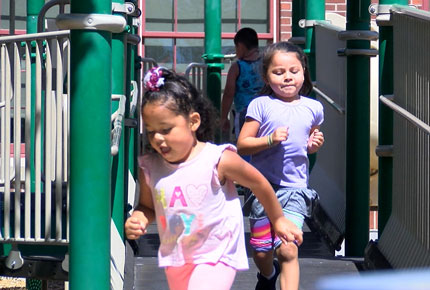 The Effects of Outdoor Play on On-Task Behavior in Preschool (7:02)
The Effects of Outdoor Play on On-Task Behavior in Preschool (7:02)
It is generally understood that giving preschool children time to play outside every day supports their gross motor development and gives them opportunities to manage their emotions and engage in unstructured social play with their peers. But how important is outdoor play for children’s academic learning? This video highlights findings from a small study that suggests that outdoor play affects children’s on-task behavior, which has significant implications for their learning.
See video and learn about the study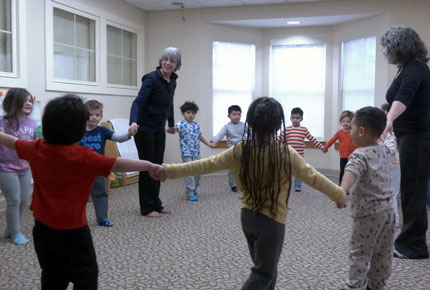 CREATIVE MOVEMENT IN EARLY CHILDHOOD SETTINGS (6:54)
CREATIVE MOVEMENT IN EARLY CHILDHOOD SETTINGS (6:54)
In this video, dance educator Stephanie Caldwell describes the many benefits of engaging young children in creative movement. She explains how she approaches movement lessons with preschoolers and how she structures group discussions afterwards to help children connect their movements with larger concepts.
See video and discussion questions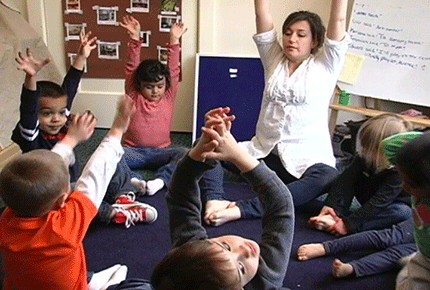 Encouraging Physical Activity in Preschoolers (8:27)
Encouraging Physical Activity in Preschoolers (8:27)
In this video from the e-clips series, Dr. Darren Robert explains the importance of physical activity for children’s development, and offers several ways to incorporate physical activity into the preschool daily routine. Two teachers describe their efforts to physically engage preschoolers through yoga and other activities, and to involve parents in encouraging physical activity at home.
See video and discussion questions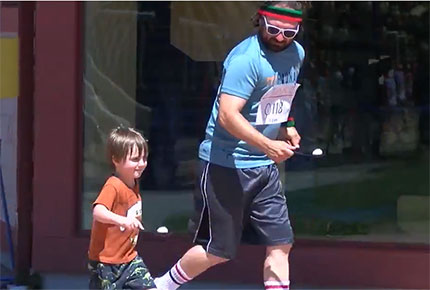 Relay Day (4:45)
Relay Day (4:45)
“Relay Day” at Eastern’s Child and Family Development Resource Center (CFDRC) gives children an opportunity to design different activities and try a variety of physical challenges. In this video, preschool teachers Emily Grogan and Kaitlin Thibodeau describe how each of the stations at the 2018 event helped children practice cooperation, self-regulation, turn-taking, and task persistence – all while having fun outside.
See video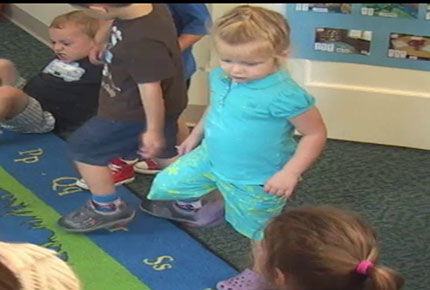 Incorporating Motor Play in the Preschool Classroom (3:40)
Incorporating Motor Play in the Preschool Classroom (3:40)
Active play promotes children’s learning. Research has shown that children are much more attentive right after they have engaged in active motor play - and that children learn through movement. This video gives teachers and caregivers ideas for integrating movement into daily routines and planned activities to help introduce new concepts and enhance learning outcomes.
See video and printable tip sheet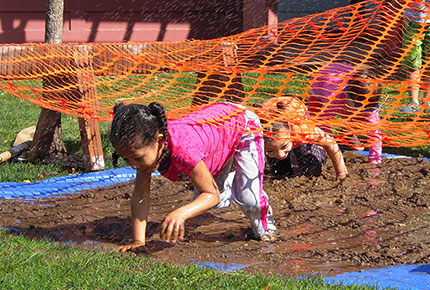 Fun Mud Day (series)
Fun Mud Day (series)
“Fun Mud Day” is an annual event at Eastern’s Child and Family Development Resource Center (CFDRC) that challenges preschoolers and toddlers to get outside and try a variety of wet and muddy obstacles. These videos show the different elements of the event. In addition, faculty, teachers, PE students, and families describe how children gain confidence and feelings of competence by trying the physical challenges.
See videos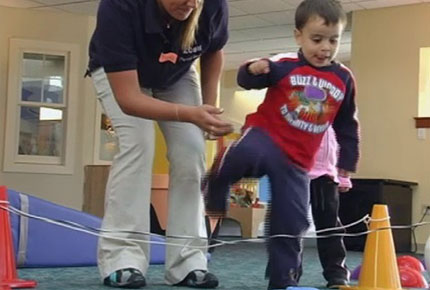 Nurturing Preschool Children's Emotional Health Through Active Play (3:55)
Nurturing Preschool Children's Emotional Health Through Active Play (3:55)
Research shows that active play serves an important role in children's social and emotional development. This video describes how adults can support children's confidence, "mastery motivation," relationships, and ability to express feelings providing fun physical challenges that are appropriate for children’s abilities, by giving children choices over how they move and play, and by providing opportunities for children to practice self-regulation through physical games.
See video and printable tip sheet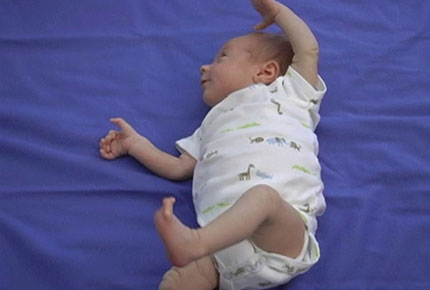 Supporting Physical Development in Infants and Toddlers (3:20)
Supporting Physical Development in Infants and Toddlers (3:20)
The first three years of life are characterized by dramatic changes in children’s physical abilities. This video describes how adults can support young children’s physical development by moving with infants, allowing infants plenty of time to freely move on their own, providing toddlers with opportunities to practice walking and running on different surfaces, and challenging toddlers to move in a variety of ways.
See video and printable tip sheet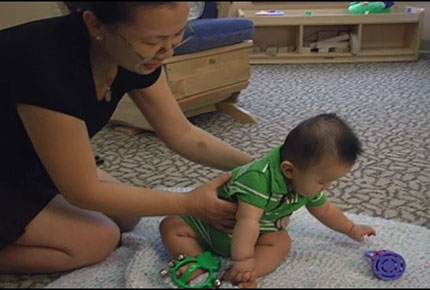 Supporting thinking in Infants and Toddlers Through Active Music and Play Experiences (2:36)
Supporting thinking in Infants and Toddlers Through Active Music and Play Experiences (2:36)
Research shows that movement supports children's cognitive development. Part of the "Supporting Children Through Physical and Outdoor Play" series, this video explores ways to use music and active play experiences to help infants and toddlers learn cause and effect.
See video and printable tip sheet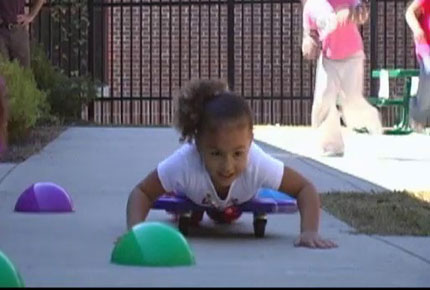 Using an Obstacle Course to Promote Active Outdoor Play (3:07)
Using an Obstacle Course to Promote Active Outdoor Play (3:07)
Many children don’t use their outdoor time to engage in sustained, active behavior - but teachers and caregivers can do much to encourage children to be more active on the playground for at least part of the time that they’re outside. This video illustrates one way teachers can structure physical activities to engage children in physical play: by planning an outdoor obstacle course with simple, inexpensive equipment.
See video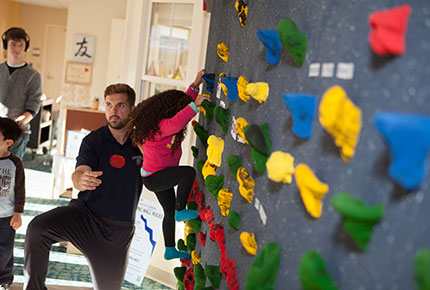 Ready to Climb (7:42)
Ready to Climb (7:42)
This video, produced by Eastern students, documents the installation of new climbing walls in the Child and Family Development Resource Center (CFDRC). Dr. Darren Robert, CFDRC director Niloufar Rezai, and teacher Claudia Ahern explain how the walls support children's physical, social-emotional, cognitive, and creative development.
See video
